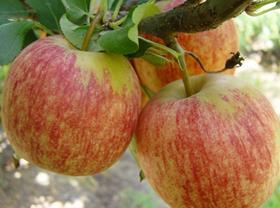
The South African fresh produce industry has taken its fight for the re-instatement of exports of apples, pears and table grapes into Thailand to the next level.
High level discussions in Pretoria between the deciduous fruit sector and various government departments and legal advisors is said to have provided new impetus to efforts to get the ban on the South African products lifted.
Anton Rabe, Executive Director of Hortgro, confirmed this morning that South Africa is now considering approaching the WTO.
In contrast to this the South African citrus sector is celebrating the fact that it has been granted access to Thailand for the first time. The draft protocol has been forwarded to the South African Department of Agriculture, Forestry and Fisheries and with a few minor changes is expected to be signed soon.
A statement drafted by South Africa’s Department of International Relations and Cooperation (DIRCO) said a recent study by the Bureau for Food and Agricultural Policy in the Western Cape found the ban on the exportation of South African fresh produce to Thailand has had a devastating effect on the fruit industry in South Africa. “Export losses are estimated at R150 million (US$21.5m) per year. This has led to job losses in the industry and concomitant socio-economic problems in the communities serving the fruit industry,” said the statement.
Apart from DIRCO, the high level meeting was also attended by the Department of Trade and Industry, the Department of Agriculture, Forestry and Fisheries, the South African pome, stonefruit and table grape industries, the Bureau for Food and Agriculture Policy, government lawyers dealing with trade matters as well as Trade Law Chambers and the trade law firm assisting the South African industry in this matter.
The South African ambassador to Thailand, Douglas Gibson, was also present.
Mr Gibson said the South African Embassy in Bangkok has had continuous discussions with a wide range of Thai decision makers in an attempt to achieve a breakthrough. He felt that the meeting in Pretoria would give fresh impetus to the resolution of the issue.
The statement said it also emerged at the meeting that South African products face barriers to entry in many markets where opportunities for exports exist.
“Government will work with South African business as well as our trading partners, including Thailand, to consider all options to find a solution to the challenges faced by our exporters in various markets, including markets in Asia,” said ambassador Francis Moloi from DIRCO.
South African apple and pear growers are also aggrieved that they have not yet been granted access to China, despite the fact that South African citrus and table grapes have both had access for some time. On a number of occasions during the past two years the signing of the protocol was said to be imminent, but nothing had happened as the issue became bogged down in inter-government politics.
The producer organisations said the Thai ban is very negative as South East Asia is one of the growing markets for South African fruit in both volume as well as in value. According to the organisations, apple export volumes to South East Asian markets increased by approximately 5 per cent between 2009 and 2010, which could have been as much as 13 per cent more, if apples did not have an off-year in 2010.
Anton Rabe said exports of pears to South East Asia, on the other hand, increased by 51 per cent between 2009 and 2010. “An industry can only expand if the demand increases exponentially, when marketing opportunities are closed it means that produce needs to be shipped elsewhere and the overall growth of an industry is negatively affected.”
He said it took years to establish new markets and everybody within the supply chain was affected by actions such as the Thai ban. “The people and businesses that are worse affected are the primary producers and their workers because at the end of the day they are ultimately the people that took the risks and incurred all the costs.”
“If the situation is not resolved it is a lost opportunity both marketing wise and revenue wise,” he said. “The growth of the industry will also be negatively affected due to the fact that plantings are also linked to demand and to profitability. The traditional markets, such as the EU and UK are under pressure due to exchange rate conditions. Far East markets are also variety and product specific which means that this produce cannot be that easily absorbed into other markets.”



